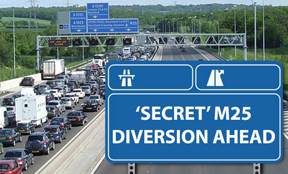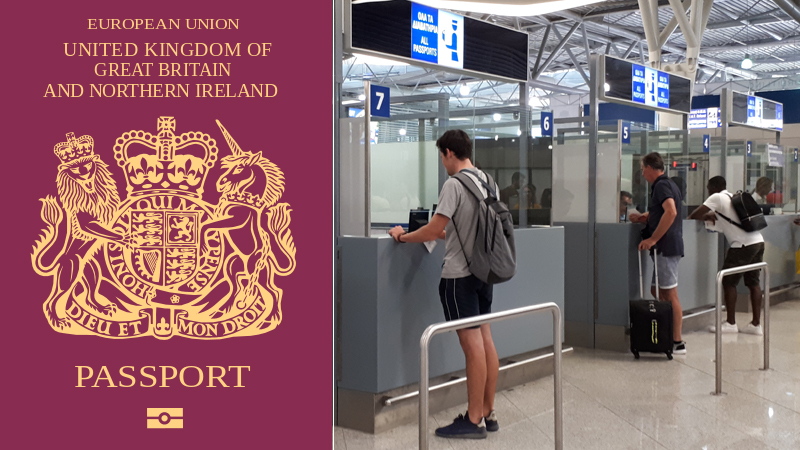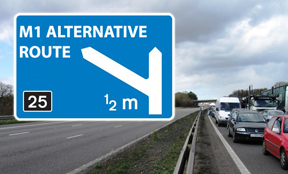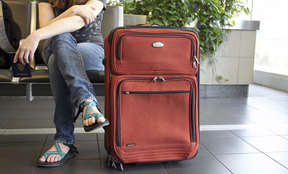
From moving house to a trip to the local recycling centre, many Brits will occasionally want to hire a small van – but they should also be aware that driving such a vehicle attracts different rules to motoring in their car.
Here motoring journalist and expert Pete Barden looks at some of the key differences when it comes to motoring laws between cars and vans that of not more than 7.5 tonnes maximum laden weight.
Failure to get up to speed with such rules could leave you facing a big fine or even a ban from driving. Here’s all you need to know.
 A man removes boxes from his hire van - but does he know
the rules around driving it? (Photo: Artem Podrez/Pexels.com)
A man removes boxes from his hire van - but does he know
the rules around driving it? (Photo: Artem Podrez/Pexels.com)
-
TABLE OF CONTENTS
-
Do I need a special licence to hire a van in the UK?
-
Can I drive a hire van on a provisional driving licence?
-
What are speed limits for vans driving on the motorway?
-
What are speed limits for vans driving on dual carriageways?
-
What are speed limits for vans driving on single carriageway roads?
-
Can I Drive a hire with my regular car insurance in the UK?
-
Examples of 3.5tonne hire vans that can be driven on a Cat B licence?
-
Conclusion
Do I need a special licence to hire a van in the UK?
Most people with a full driving licence will likely be able to drive a hire van weighing up to 3500kg (3.5tonnes). To make sure that you have this category, simply take a look at the back of your driving licence photocard and it should be listed. If you still have a green paper licence, the driving categories are not printed on it, but you should be covered.
For drivers who passed their test before 1 January 1997, they may also have a C1 category listed, which allows them to drive trucks up to 7.5tonnes on their car licence. Make sure you check you have the C1 categorisation before driving a larger hire van or you could find yourself in serious trouble.
Can I drive a van on a provisional driving licence?
Provisional driving licence holders can drive a van weighing up to 3.5tonnes with a qualified driver sitting beside, them. However, most van hire firms will not allow learner drivers to hire a vehicle so driving on such a licence could leave you in breach of the provider’s terms and conditions – therefore leaving you without insurance cover.
What are speed limits for vans driving on the motorway?
If your hire van route is likely to take in some motorway driving, the good news is that, in the majority of cases, you'll find the speed limit set at 70mph. This encompasses small vans, medium-sized vans, dual-purpose vehicles, and goods vehicles weighing up to 7.5 tonnes unladen.
On another note, for anyone who has hired a motorhome, the motorway speed limit remains fixed at 70mph, irrespective of whether the vehicle is more or less than the 3.5tonne threshold.
What are speed limits for vans driving on dual-carriageways?
Here's where things start to get a bit more complicated for anyone hiring a van or truck. If you're behind the wheel of a smaller van (typically a car-derived van), your maximum speed on a dual-carriageway is 70mph. However, when it comes to medium-sized vans such as the Volkswagen Transporter or large vans such as the Ford E-Transit, that limit is cut to 60mph.
Certain pick-up trucks also fall under the 60mph limit while being driven on dual carriageways. This applies to single-cab trucks weighing over 2040kg, as they don't qualify as dual-purpose vehicles.
Separate rules apply to minibus drivers.
Subscribe for free motoring and travel news here - support independent journalism
What are speed limits for vans driving on single-carriageway roads?
On single-carriageway roads, the speed limit for car-derived small vans and dual-purpose vehicles is set at 60mph.
However, for drivers whose hire van is in the 7.5 tonnes category, the maximum speed limit for single-carriageway roads drops to 50mph. The limit is different in Scotland, with larger vans being limited to 40mph on single-carriageway roads.
Are there parking restrictions for hire vans?
On the whole, hire vans up to 3,500kg (3.5tonnes) will be able to park in public car parks, but look out for height restrictions when entering – or you could be liable for some expensive repairs. Make sure you have read through the restrictions that are displayed in the car park. If none are listed then you are free to park.
If you are driving a hire van/truck in the up to 7,500kg (7.5tonnes) category, then you may not be able to park in standard car parking spaces and will need to look out for restrictions.
Additionally, when it's dark, and if your hire van weighs more than 2,500kg, you must leave its sidelights on when you parking on public roads. The same rule applies to all vehicles parked on a road with a speed limit of more than 30mph.
Can I Drive a hire with my regular car insurance in the UK?
When hiring a vehicle, make sure that the hire firm provides insurance for you, as it is unlikely that your own car insurance policy would cover you driving a hire van or truck. You must always make sure you have the correct insurance in place when driving a hire van or you could be hit with huge legal and financial implications.
What are examples of 3.5tonne hire vans that can be driven on a Cat B licence?
The following types of hire vans are likely to be fine for driving with category B on your licence.
- Ford Transit
- Peugeot Boxer
- Fiat Ducato
- Renault Master
- Vauxhall Movano
- Citroen Relay
Conclusion:
Understanding the rules and regulations associated with driving transit vans in the UK is essential for anyone considering hiring one. From speed limits to parking restrictions and licensing requirements, adhering to these guidelines ensures a safe and compliant driving experience. By following these Q&A SEO explainer insights, you'll be better equipped to navigate the roads with a transit van in the UK, promoting safety and compliance with the law.
Latest motoring news
Take a look at more of our top motoring-related content here...
-
CAR TAX SHOCK: How much is my car tax going to go up by?
-
CAN I STILL DRIVE?: My driving licence has expired - can I keep driving while I wait for a new one?
-
DRIVERS IN 20MPH PERIL: How fast in a 20mph zone will get a speeding ticket in London
-
TOP EVS FOR BRITS: What is the most popular electric car (EV) for UK buyers 2022?
-
TESTING TIMES: Can I book cancelled driving tests to beat the rush?
-
M25 JAM BUSTER: M25 alternative routes
-
SECRET PARKING FINES: Secret parking offences you're committing but don't realise
-
SUNGLASSES SHOCK: Are my sunglasses legal for driving - how to check instantly?
-
NUMBER PLATES EXPLAINED: How old is a car by its number plate? Full list
-
SPEEDING TICKET CHECK: Will I always get a speeding ticket after being flashed
-
AVOID POINTS: Will I get a speed awareness course instead of points?
-
DRIVING ABROAD DOCUMENTS: Do I need an international driving permit for France, Spain, Greece and more
-
WHITE LINES EXPLAINED: What are the rules around double white lines and the risk of £1,000 fine?
-
BRUM: DEAL Do I pay the Birmingham Clean Air Zone at weekends?
-
GOT YOUR NUMBER: What does my driving licence number reveal about me?
-
FAKE COP SHOCK: How to spot a fake undercover police car
-
ELECTRIC LICENCE TO DRIVE: Do I need an electric car licence and driving test in the UK?
-
VAPE RULES: Can I vape in a car with kids in it?
-
LICENCE TIMES: When can I apply for a provisional licence?
-
E-SCOOTER LAWS: Are electric scooters Legal in the UK now? When is the law changing?
-
SLIDERS MUST-KNOW: Can I drive in sliders in the UK?
-
DOT CHECK: What are the black dots on my windscreen for?
-
CAR TRACKER: How can I find out who owns a car
-
CHARGE AND DRIVE: Electric car charging points at UK airports for public use - 2022
-
TYRE-CHECK TOOL: How old are my tyres - find out instantly here
-
CAR FUTURE: What happens to a car when the owner dies?
-
SPARE WHEEL RULES: How far and how fast can I drive on a space saver spare wheel
-
TICKET RISK: Can I be fined if the car park ticket machine is not working?
-
M6 JAM BUSTER: Is the M6 Toll Road free in the evening and at weekends?
-
PAY OR NOT PAY: How much is the Tamar Bridge toll and when do I need to pay it?
Author: Pete Barden:
Twitter: @pete_barden
Pete Barden is a qualified journalist who has written and produced for publications including The Sun (thesun.co.uk), New Statesman Media Group, Whatcar? (Whatcar.com) Stuff Magazine (Stuff.tv), Fastcar Magazine (Fastcar.co.uk), Maxim Magazine and UK broadcast stations within the Heart network (Formerly GCAP). Pete specialises in motoring and travel content, along with news and production roles. You can find out more about Pete Barden on LinkedIn.











